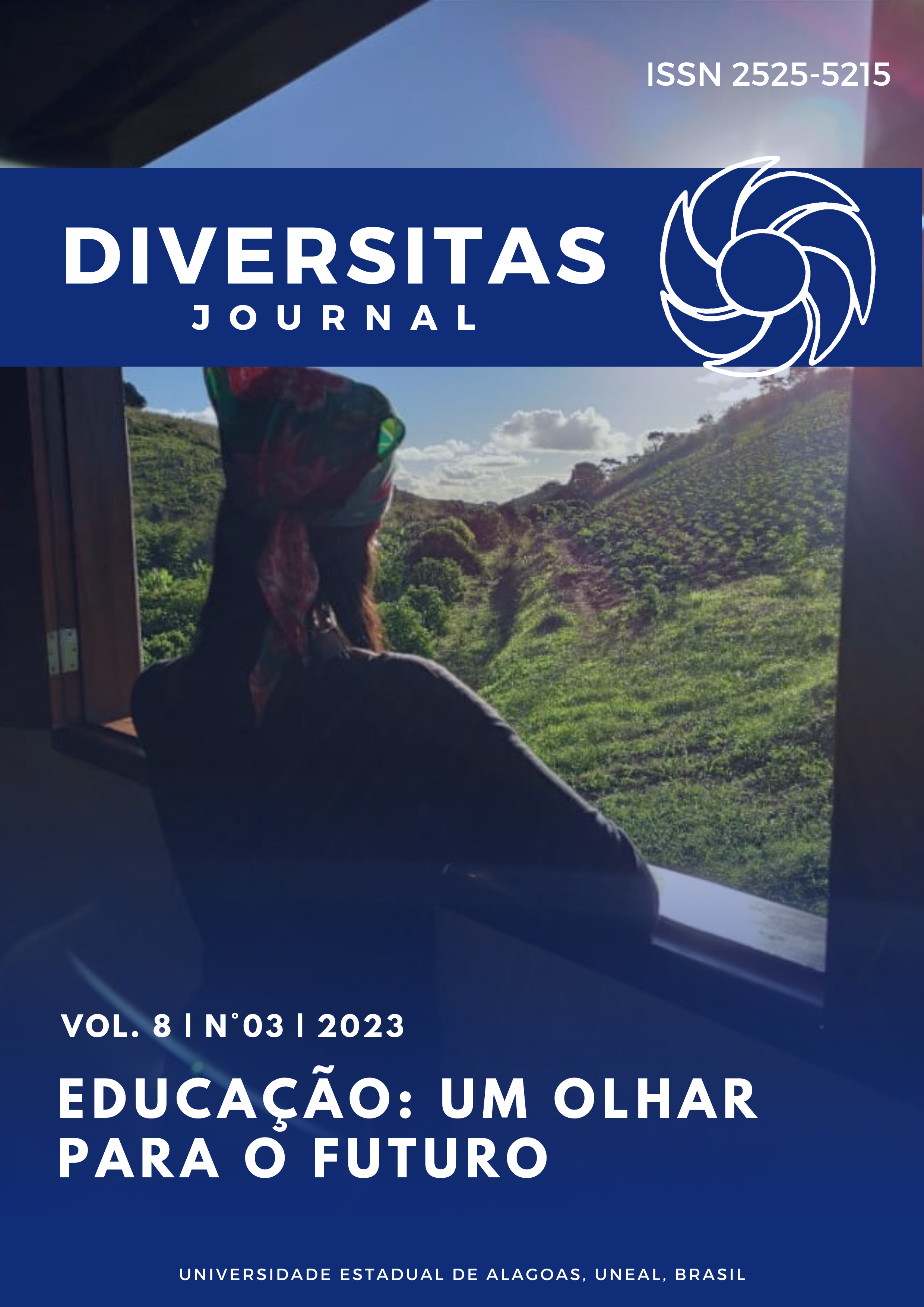Acquired Skills of Graduates of a Local Philippine University and its Relevance to Their Present Job: A Tracer Survey
DOI:
https://doi.org/10.48017/dj.v8i3.2644Keywords:
employability, competencies, skills, tracer study, tertiary educationAbstract
Employers need graduates who are better prepared for the workplace. In the Philippines, higher education institutions (HEIs) must generate competent graduates who can adapt to quickly changing industries, notably skills, and competencies. To assess this, HEIs regularly conduct tracer or employability surveys or studies to ensure that graduates possess the competencies and abilities that employers need and that curriculum is relevant to industry needs. For this reason, the researchers conducted this study to document the employment characteristics, transition to employment, and acquired skills while studying in a local university of graduates from the school year (SY) 2016-2017 to SY 2020-2021. The most prominent finding is that graduates of the local university see that the competencies and skills they acquired while studying in school are beneficial in their careers and help their rankings and salaries. The university’s goal of being the number one choice for employable graduates is manifested in the workplace.Metrics
References
Abas, M. C., & Imam, O. A. (2016). Graduates’ competence on employability skills and job performance. International Journal of Evaluation and Research in Education, 5(2), 119-125.
Acosta, P. & Igarashi, K. (2017b). Philippines: Keeping in step with what employers want. World Bank. https://bit.ly/3ctT1f7
Badiru, E. O. & Wahome, M. (2016). Conducting graduate tracer studies for quality assurance in East African Universities: A focus on graduate students’ voices on quality culture. Journal of Education and Practice, 7(6), 174-181.
Bringula, R.P., Balcoba, A.C., & Basa, R.S. (2016). Employable skills of information technology graduates in the Philippines: Do industry practitioners and educators have the same view? In Proceedings of the 21st Western Canadian Conference on Computing Education, pp. 10. https://doi.org/10.1145/2910925.2910928
Caingcoy, M. E., Ramirez, I. A. L., Gaylo, D. N., Adajar, M. I. W., Lacdag, E. O., & Blanco, G. A. B. (2021). Employment, employability, and competencies of the Bachelor of secondary education graduates. International Journal of Research in Education and Science (IJRES), 7(3), 872-884. https://doi.org/10.46328/ijres.2328
Commission on Higher Education. (2019). Distribution of Higher Education Institutions by institution type: AY 2018-19. https://ched.gov.ph/distribution-of-higher-education-institutions-by-institution-type-ay-2018-19/
European Training Foundation. (2017). Tracer Studies Evaluating the Impact of Training Programmes. https://www.etf.europa.eu/sites/default/files/CEDE612F00BFF6B3C12581A600278816_Tracer_studies.pdf
Fallah. J. K. (2017). The importance of attitude in workplace. https://www.researchgate.net/publication/343447135_The_Importance_of_Attitude_in_Workplace
Gines, A. (2014). Tracer study of PNU graduates. American International Journal of Contemporary Research, 4(3), 82-98. https://www.aijcrnet.com/journals/Vol_4_No_3_March_2014/10.pdf
Goswami, R. (2013). Importance of soft skills in the employability of it students. In Proceedings of National Conference on Emerging Trends: Innovations and Challenges in IT (19, 20).
Indeed. (2021 March 6). How to demonstrate your willingness to learn in the workplace. https://www.indeed.com/career-advice/interviewing/willingness-to-learn
Kalaw, M. T. (2019). Tracer study of Bachelor of Science in Mathematics. International Journal of Evaluation and Research in Education, 8(3), 537-548. https://ijere.iaescore.com/index.php/IJERE/article/view/17434
Kim, J., Erdem, M., Byun, J. and Jeong, H. (2011), Training soft skills via e‐learning: international chain hotels. International Journal of Contemporary Hospitality Management, 23(6), 739-763. https://doi.org/10.1108/09596111111153457
Laker, D.R. and Powell, J.L. (2011), The differences between hard and soft skills and their relative impact on training transfer. Human Resource Development Quarterly, 22(111-122). https://doi.org/10.1002/hrdq.20063
Mubuuke, A., Businge, F., Kiguli-Malwadde, E. (2014). Using graduates as key stakeholders to inform training and policy in health professions: The hidden potential of tracer studies. African Journal of Health Professions Education, 6(1). http://www.ajhpe.org.za/index.php/ajhpe/article/view/302/233
Patacsil, F. and Tablatin, C. L. (2017). Exploring the importance of soft and hard skills as perceived by IT internship students and industry: A gap analysis. Journal of Technology and Science Education, 7(3). http://dx.doi.org/10.3926/jotse.271
Philippine Qualifications Framework. (n.d.). What is PQF? https://pqf.gov.ph/
Ramirez, T., Cruz, L., and Alcantara, N. (2014). Tracer study of RTU graduates: An analysis. Journal of Arts, Science & Commerce, 5(1), 66-76. https://asset-pdf.scinapse.io/prod/292833989/292833989.pdf
Schomburg, H. (2016). Carrying out tracer studies: Guide to anticipating and matching skills and jobs.https://ingradnet.org/images/schomburg_2016_carrying_out_tracer_studies.pdf.
Tutor, M. V., Jr., Orbeta, A. C., and Miraflor, J. M. (2021). The 4th Philippine Graduate Tracer Study: Examining Higher Education as a Pathway to Employment, Citizenship, and Life Satisfaction from the Learner’s Perspective. Philippine Institute for Development Studies. http://hdl.handle.net/11540/13906.
Vasanthakumari, S. (2019). Soft skills and its application in work place. World Journal of Advanced Research and Reviews, 3(2), 66-72. https://doi.org/10.30574/wjarr.2019.3.2.0057
Williams, A.C. (2015). Soft skills perceived by students and employers as relevant employability skills. Walden University. http://scholarworks.waldenu.edu/cgi/viewcontent.cgi?article=2426&context=dissertations
Woya, A. A. (2019). Employability among Statistics graduates: Graduates’ attributes, competence, and quality of education. Education Research International. https://doi.org/10.1155/2019/7285491
Downloads
Published
How to Cite
Issue
Section
License
Copyright (c) 2023 Angelito Bautista Junior, Bradford Antonio Martinez, Isagani Tano, Randel Estacio, Ryan Arago, Gerardo Bautista, Lenard Bien

This work is licensed under a Creative Commons Attribution 4.0 International License.
The Diversitas Journal expresses that the articles are the sole responsibility of the Authors, who are familiar with Brazilian and international legislation.
Articles are peer-reviewed and care should be taken to warn of the possible incidence of plagiarism. However, plagiarism is an indisputable action by the authors.
The violation of copyright is a crime, provided for in article 184 of the Brazilian Penal Code: “Art. 184 Violating copyright and related rights: Penalty - detention, from 3 (three) months to 1 (one) year, or fine. § 1 If the violation consists of total or partial reproduction, for the purpose of direct or indirect profit, by any means or process, of intellectual work, interpretation, performance or phonogram, without the express authorization of the author, the performer, the producer , as the case may be, or whoever represents them: Penalty - imprisonment, from 2 (two) to 4 (four) years, and a fine. ”


















